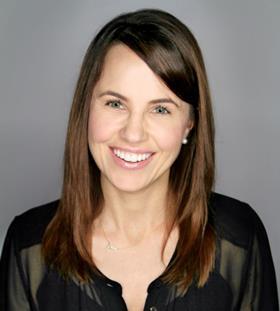The only constant is change as the post sector gears up for remote distributed permanence, more virtual production and a bounce back

Sherri Potter, President, Technicolor
“Nobody really likes change, but the reality is that this is forced change. Like the tsunami of 2011 which wiped out tape stock and forced the industry to move to file workflows, 2020 was a futureshock for the industry in terms of remote post-production. Where the industry was resistant to working at home in terms of security, now we’re all able to set up securely and carry on working.
That said, the one thing we should never forget is the human interaction you get with peers and other creatives. There’s still a need for people to come together to inspire one another. If you stay remote permanently you risk losing that.
In 2021 we will see further adoption of virtual production, but widespread use of virtual sets and pipelines is premature. When you’re prepping a movie and deciding whether to greenlight it do you need to have that many crew going to a certain location when you can create the environment locally? It’s a very different concept to how people are used to working. There will be filmmakers and studios more willing to embrace that than others.
There is an argument that the legacy of 2020 will be to accelerate the move to remote distributed post-production and pop-up facilities. While I can understand the benefits of this approach for certain companies or productions, I don’t think we will see a huge shift in this direction in 2021.
Throughout Technicolor’s history we are proud that never miss a delivery. We cannot fail. The reason why studios come to us is that they entrust we won’t fail and that we will throw whatever resources we need at the problem to ensure that even the most complicated production delivers. Schedules across TV and features are becoming more compressed as demand for content ramps up. What’s more the creative process now continues throughout the whole post process so that where creatives request changes to their vision we can respond and deliver at any point.
So, will there be a need in future for massive bricks and mortar buildings? No. Will facilities be able to reduce their footprint? Absolutely. But there will always be a need for a hub with the IP and talented individuals that a producer can rely on? I believe so.”

Leon Silverman co-founder HPA, chair HPA Industry Recovery Task Force
“In 2021, we will continue to find innovative ways to bolt together these new connected, collaborative creative tools tying our remotely accessed post production and VFX infrastructure to the cloud and to the homes and locations of the dispersed global filmmaking community.
While post production service providers will continue to be key in providing creative finishing and workflow support services, there is no doubt that the pandemic will be a defining moment in how our post production physical facilities model continues to evolve.
“Our new finest hours in post will come from our usual resilience and ability to innovate and iterate. We will need to adapt to and adopt the best ways to serve and integrate within an increasingly cloud hosted, highly distributed, software defined, connected, collaborative, content creation ecosystem. There is no doubt that this is the industry’s future and vision and to me, there is no doubt that our post production community will, as they have in the past, rise to the challenge.”

Dave Cadle, CEO, Envy
“2021 will be a vibrant year. There is so much production backed up now that needs to get through the pipe it could be a very productive year. So much so that we will need to get more infrastructure out to client buildings and to our operator’s homes. We also need to look at other work and diversify with involvement in more fixed-rig style work. That’s why we’re opening a new division in January called Capture to focus on remote and fixed rig shows.
I predict that the post market will consolidate and I wouldn’t be surprised if a few companies joined forces and merged their resources to look at the bigger picture. Oddly, though, I can’t see a lot of space being lost in central London. If anything, the sector will add more craft rooms that can be switched between home and away.”

Loren Nielsen, VP Content & Strategy DTS Inc / Xperi; Member of the Board of Directors for the HPA and International Cinema Technology Association
“In the first wave, while many people were furloughed, the sector still had work in the pipe and to an extent could continue remotely. That work has mostly been completed and still awaiting distribution while work that would have been coming in now is trickling back in the second wave of Covid-19.
The ability to work from home securely has become essential as Covid forced everyone into remote forms of post and collaboration. These tools will continue to develop rapidly along with our understanding and application of ‘at home’ workflows. This period of rapid adjustment and global deployment will be looked back on as a renaissance in work / life balance.
The tech we need to see in 2021 is an extension of this. In particular we need greater integration of tools to work across cloud platforms whether AWS, GCP or Azure. We will see development in the role of the DI toward cloud integration. Just as a DI technician on a production ensures that content is prepared in the right file format, new skills are needed to manage the ingest and egress of rushes from set to cloud and back.
All of this ties into bandwidth; 5G could make a difference, as will faster fibre broadband infrastructure. Something had to give here since we are all just sucking that bandwidth like crazy.
Diversity and inclusion is another area where we will see greater strides in 2021. The HPA has been developing programmes to promote inclusion for years including one it recently started with SMPTE. Xperi has a corporate diversity program too and I’m aware of the great advocacy work of RISE. I think we will see a change in the industry because of this. As we increase the representation of women and other groups we will see different types of stories told and different types of workflow. It’s hard to define exactly what it will look like but we will see companies, products and certainly a lot of opportunities for conference panels, to look and sound much more diverse.
Technology is historically very male and largely white oriented but the ironic thing when comes to engineering, math and science is that many of our young tech recruits excel in these subjects. We need to continue to support them through their career so that they don’t just become tech burn outs.”

David Sheldon-Hicks, Founder and Creative Director, Territory Studio
“Everyone is talking about virtual production. When we worked with LED screens on David Fincher’s Mank we decided to go down a pre-rendered route rather than using a realtime game engine. We still had the benefits of lighting the scene with the LED and the background replacement happening live, but we didn’t have the investment of getting realtime assets ready, which for this project would have been unnecessary.
- Read more: Behind the scenes: Mank
What I’m hoping to see is art departments really engaging with this tech and driving the creative forward. As designers of the vision they are perfectly placed to bring LED usage alive in beautifully cinematic ways.
There’s no reason why indies can’t consider virtual production as a replacement for green screen or location work where travel becomes an issue.
AI and machine learning is developing at speed and I suspect is going to change our industry at the very core. Some of the AI algorithms that can now age and de-age people in film clips is incredible. The potential power and impact on the industry is significant and especially relevant to team sizes and structure. We may no longer need VFX artists to perform mundane tasks and can instead focus small teams of highly skilled specialists to work on really creative challenges. That change won’t happen overnight, but over the decade I suspect it inevitably will. My hope is that it brings directors and filmmakers closer to the creative process of VFX. It will also mean we need to look at training and how we develop people. Ultimately it could lead to better working conditions and enjoyable work for more people.
Despite what is happening with Brexit I feel compelled to work with European partners and projects. We will invest in hiring across Europe, as it’s a source of incredible talent, even if that means increased investment from us. Brexit sadly signals to our European partners the wrong message and I suspect it falls on British industry to do our best to counter that sentiment and work hard to get past the challenges ahead. I’ve got a personal care and love of Europe and the inclusion it stands for, and whilst it’s not perfect it is a wonderful creative community to be a part of.”

Adam Peat, Director of Technical Operations, The Farm Group
“For 2021 we see demand for a hybrid scenario of traditional facility attendance and remote working continuing. Our aim is to make this as flexible and efficient as possible for our clients, so they can work where and when they want. Remote working tools will continue to be developed for use in the post production sector and make working remotely even more attractive where suitable.
Our existing ability to provide collaborative remote editing, live and non-live content streaming in formats from HD SDR to UHD HDR will continue and improve with further development. Increased virtualisation will allow us to be even more responsive to demand, and increased content analysis will also help us to make the post process more efficient.
In tandem, increased investment across the regions will enable us to accommodate the demand for more UHD/HDR/immersive audio work which we continue to see across both scripted and unscripted genres, and the ability to provide a joined-up post pipeline across multiple regional centres.”
- Read more: Remote production workflows at The Farm
Tim Pipher, owner, L.A Castle Studios
“L.A. Castle Studios [a virtual production studio in Burbank, CA] has definitely lost bookings that otherwise would have come through due the pandemic. On the other hand, because virtual production is generally considered to be a safer way to shoot, we’ve gained other bookings. Overall, counterintuitively, our bookings are up considerably.
Production will be heavily up in 2021 due to pent-up demand. Virtual set production will especially be up due to lower required personnel (thus safety), but also for cost and creative advantages. Virtual production will be up at all budget levels. Lower budget productions have realized that virtual production levels the playing field, allowing for million dollar sets and locations without spending the million dollars. Big budget productions like to save money too, so they’re also enthusiastic. Producers are realizing there’s no need to build real sets when virtual can offer total reality with greater speed, lower costs, and a greener environmental impact.”



























No comments yet